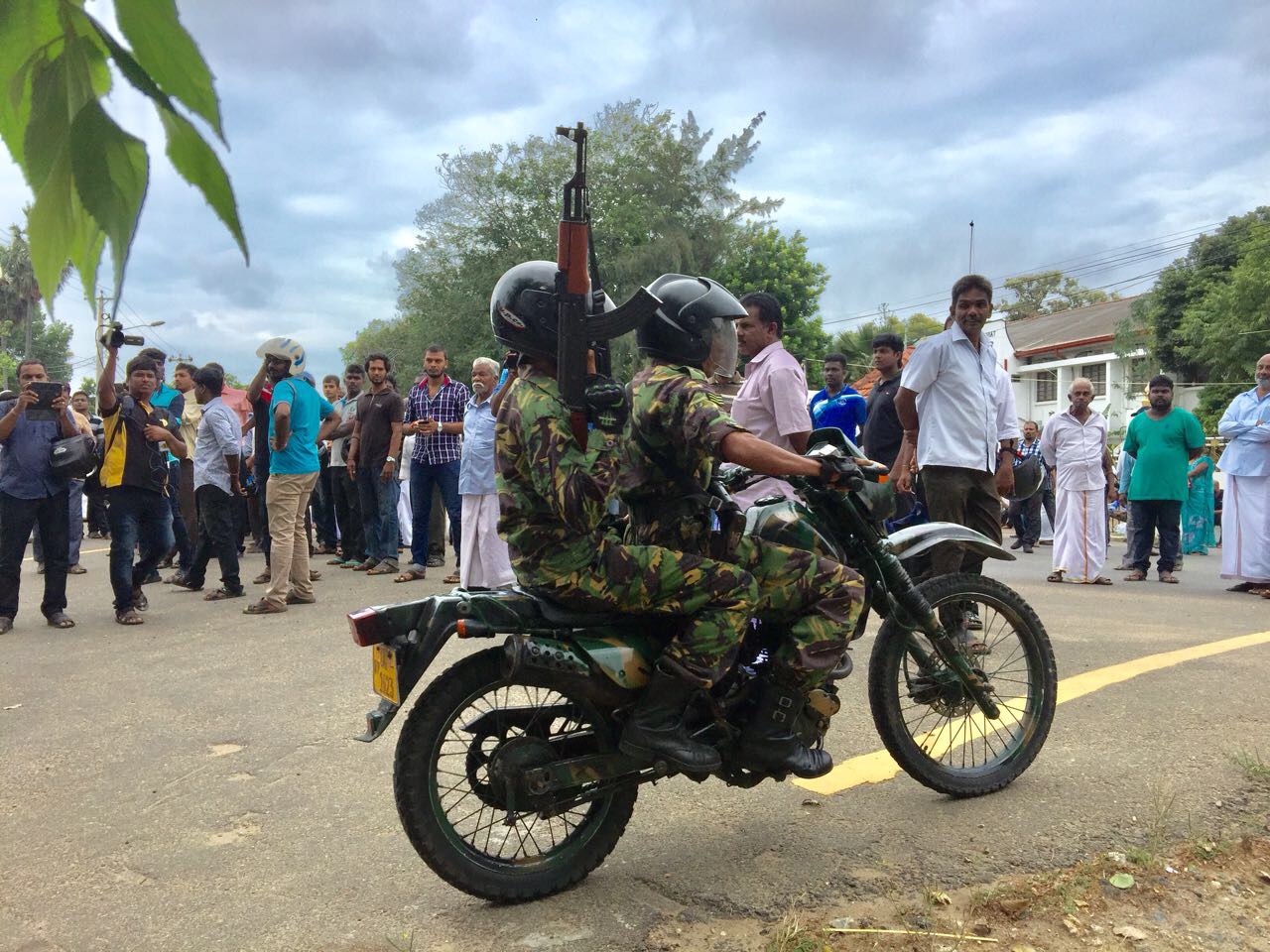The UN High Commissioner for Human Rights, Zeid Ra'ad Al Hussein has highlighted the need for a "much closer inspection" on the part of the UN into reports of rape and torture of Tamil men by Sri Lankan security services since 2016, under the current national unity government.
Responding to reports published on Wednesday by the Associated Press detailing rape and torture by security forces from 2016 until July 2017, Mr Zeid said, "while the UN is unable to confirm this until we mount an investigation, clearly the reports are horrifying and merit a much closer inspection from our part, especially if they occurred in 2016 and 2017."
The news wire, which based its feature on interviews with 20 Tamil men and a review of 32 medical and psychological reports, noted that the UN Human Rights chief was "aghast at AP's accounts of the 52 tortured men."
The reports of ongoing torture and rape of Tamils at the hands of Sri Lankan security forces comes at a time when the government led by Maithripala Sirisena and Ranil Wickremesinghe has tried to rebuild the country's image internationally following a series of UN reports and UN Human Rights Council resolutions on war crimes and crimes against humanity committed.
The government has denied the reports of ongoing torture and rape, stating that it "strongly condemns any act of torture".
The military has rejected the reports as a fabrication.
Sri Lanka's army commander, Lt Gen Mahesh Senanayake was quoted by AP as saying, "there are people who come back and make up these stories, especially people who are living in Europe."
"I'm very confident on what I say, because army was not involved and as for that matter I'm sure that police also were not involved," he said, adding, “There’s no reason for us to do that now.”
Lack of progress
Despite co-sponsoring resolution 30/1 which calls for a hybrid court to be established in order to investigate and provide justice for the mass atrocities, the Sri Lankan government has failed to make progress on the issue of accountability.
In March, Mr Zeid criticised the government's progress as "worryingly slow" and called on member states to "wherever possible, in particular under universal jurisdiction, investigate and prosecute those allegedly responsible for such violations as torture, enforced disappearance, war crimes and crimes against humanity."
Mr Zeid said, "in the face of rising frustration among victims, a number of confidence building measures must be accelerated. These include the release of land occupied by the military, which remains slow. While an effort is underway to repeal the Prevention of Terrorism Act and replace it with legislation with complies with international human rights law, this work has yet to be concluded."
"I am particularly troubled by the lack of progress on a number of emblematic cases. The consistent failure to effectively investigate, prosecute and punish serious crimes appears to reflect a broader reluctance or fear to take action against members of the security forces."
"Combined with a general lack of trust of the justice system regarding past violations this continuing unwillingness or inability by the authorities to address impunity reinforces the need for international participation in a judicial mechanism."
The government has continued to fail to make progress on accountability however, as well as on the wider issues of detention such as a repeal of the Prevention of Terrorism Act (PTA), the release of land from military occupation and an end to the militarisation of the Tamil areas, despite numerous government promises made on the international stage.
Rising frustration among victims
The failure to act has repeatedly raised questions about the government's commitment to its own pledges. Last month the UN Special Rapporteur on the promotion of truth, justice, reparation and guarantees of non-recurrence, Pablo de Greiff reiterated concerns over the delays in the implementation of transitional justice measures, stating that it raised "questions in many quarters about the determination of the government to undertake a comprehensive transitional justice programme."
In March the UN HRC adopted a co-sponsored resolution on promoting reconciliation, accountability and human rights in Sri Lanka, granting the country two more years until 2019 to implement the actions set out in resolution 30/1 from October 2015.
The lack of progress on accountability is fueling increasing frustration among Tamils, whose vote was crucial in bringing the national unity government to power in 2015.
Recent months have seen frequent protests by Tamils across the North-East, including by families of the disappeared and students at the University of Jaffna, calling for the release of land occupied by the military and the release of Tamil political prisoners.

Agitation among the Tamils, particularly in the run up to Tamil National Remembrance Day on November 27th has led to the increased deployment of security forces, particularly armed Special Task Force officers in Tamil areas.
The national unity government's failure to act and ongoing reports of rape and torture has been met with condemndation but unsurprise from Tamils, who renewed calls for internationally led process of investigation and prosecution for mass atrocities committed against the Tamil people.

